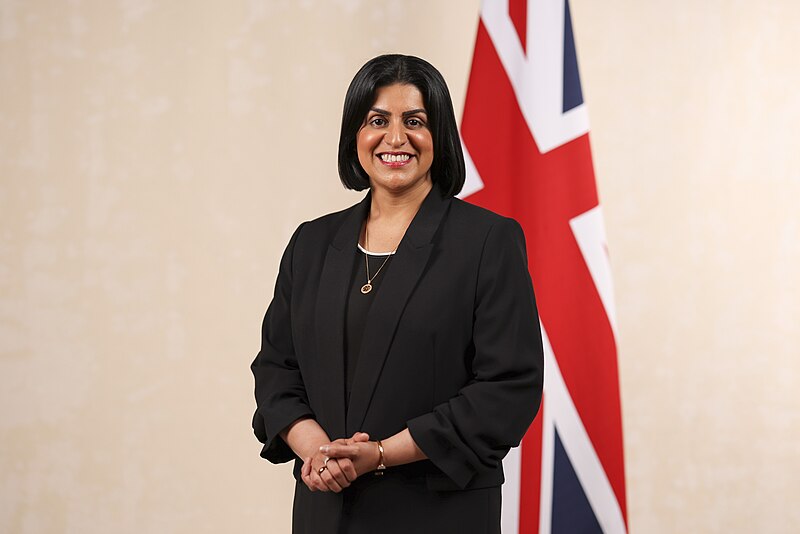
Today, Friday, 12 July, Lord Chancellor Shabana Mahmood outlined urgent measures to prevent the imminent collapse of the criminal justice system due to overcrowded
prisons.
Mahmood emphasized the dire consequences of prison overcrowding, warning that if prisons run out of space, courts will be forced to delay incarcerations, and police will struggle to detain dangerous criminals, endangering public safety.
During her initial visits as Lord Chancellor, Mahmood met with frontline probation staff and toured HMP Bedford and HMP Five Wells, where she highlighted the critical state of the prison system.
In a speech at HMP Five Wells in Northamptonshire, Mahmood stated:
“When prisons are full, violence rises – putting prison officers on the front line at risk. When no cells are available, suspects cannot be held in custody. This means vanloads of dangerous people circling the country, with nowhere to go.
The police would have to use their cells as a prison overflow, keeping officers off the streets. Soon, the courts would grind to a halt, unable to hold trials.
With officers unable to act, criminals could do whatever they want, without consequence. We could see looters running amok, smashing in windows, robbing shops and setting neighbourhoods alight.
In short, if we fail to act now, we face the collapse of the criminal justice system. And a total breakdown of law and order”.
National Police Chiefs’ Council Chair Chief Constable Gavin Stephens commented:
“It is pleasing to see the new government has taken action on this pressing issue so quickly.
We are supporting the Ministry of Justice and other partners in the criminal justice system to manage the impact of these changes, particularly around supporting victims, families and others who will be affected”.
With prisons operating at over 99 percent capacity since early 2023 and cells expected to be fully occupied within weeks, Mahmood outlined necessary steps to prevent collapse and ensure public safety. She emphasized the urgency of government action to avert this crisis.
Mahmood announced the termination of the End of Custody Supervised Licence scheme, introduced in October 2023 to alleviate prison overcrowding by releasing prisoners 18 days early. Over 10,000 offenders were released under this scheme.
Instead, the government will temporarily reduce the proportion of certain custodial sentences served in prison from 50% to 40%, with safeguards to maintain public safety. Serious violent and sexual offenses, as well as domestic abuse-related crimes, will be excluded. These crimes include stalking, coercive control, non-fatal strangulation, and breaches of protective orders. Offenders will be strictly monitored on licence by the Probation Service, with electronic tagging and curfews, and face recall to prison for breaches.
The new rules will not apply to the most serious offenders, who either serve two-thirds of their sentence or have release determined by the Parole Board.
Mahmood also promised transparency with detailed and regular publications on releases under the new standard determinate sentence guidelines.
Acknowledging the challenges faced by the Probation Service, Mahmood announced plans to recruit over 1,000 additional trainee probation officers by March 2025 to improve offender management post-release.
Mahmood committed to long-term solutions for the prison crisis, including speeding up prison construction by unblocking the planning system and enacting broader reforms. A 10-year capacity strategy will be published in the Autumn, aligned with the Spending Review timeline. An Annual Statement on prison capacity will ensure accountability and adequate prison places to keep dangerous offenders off the streets.
Concluding her speech, Mahmood said:
“The measures I have set out are not a silver bullet but they will give us the time we need to address the prisons crisis, not just today but for years to come.
That means continuing the prison building programme. And only by driving down reoffending will we ever find a sustainable solution to the prisons crisis”. Photo by Lauren Hurley / No 10 Downing Street, Wikimedia commons.



































